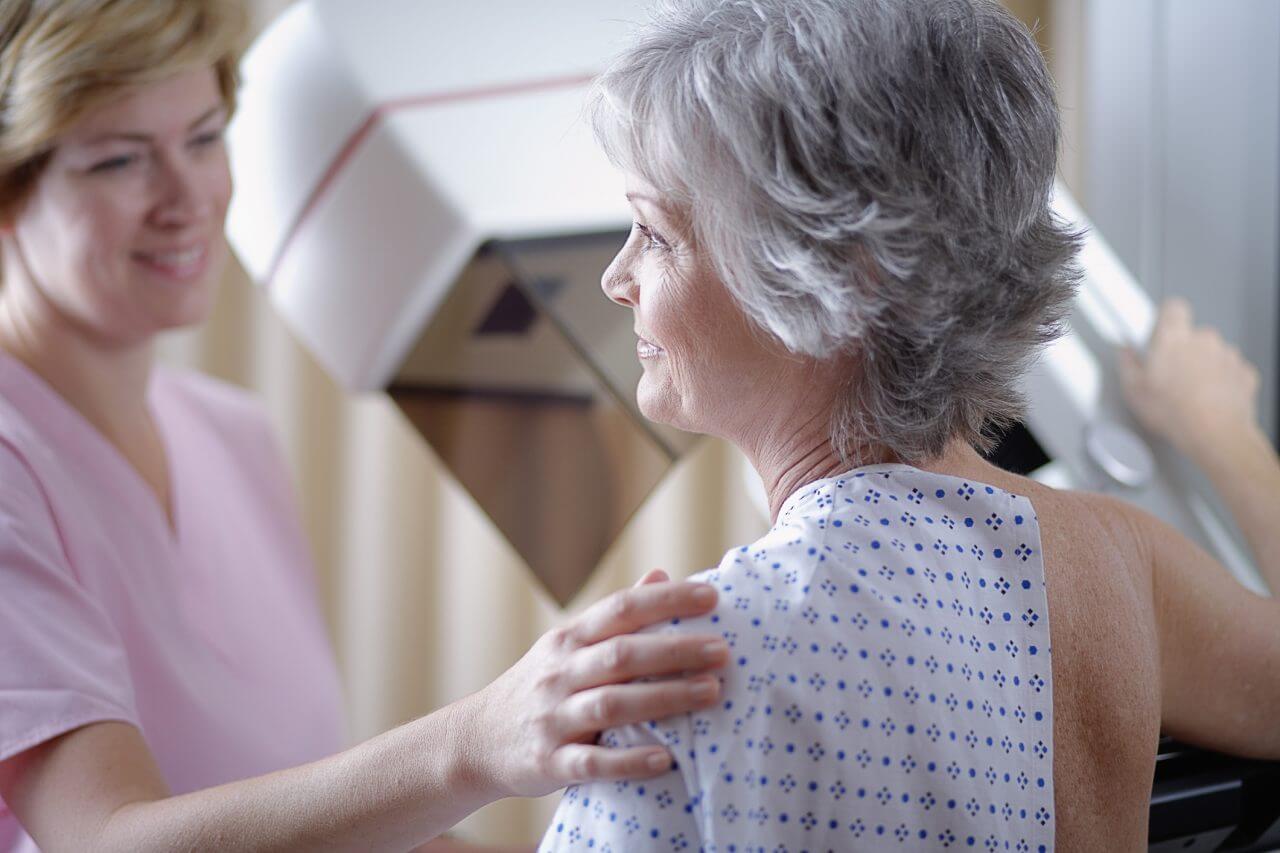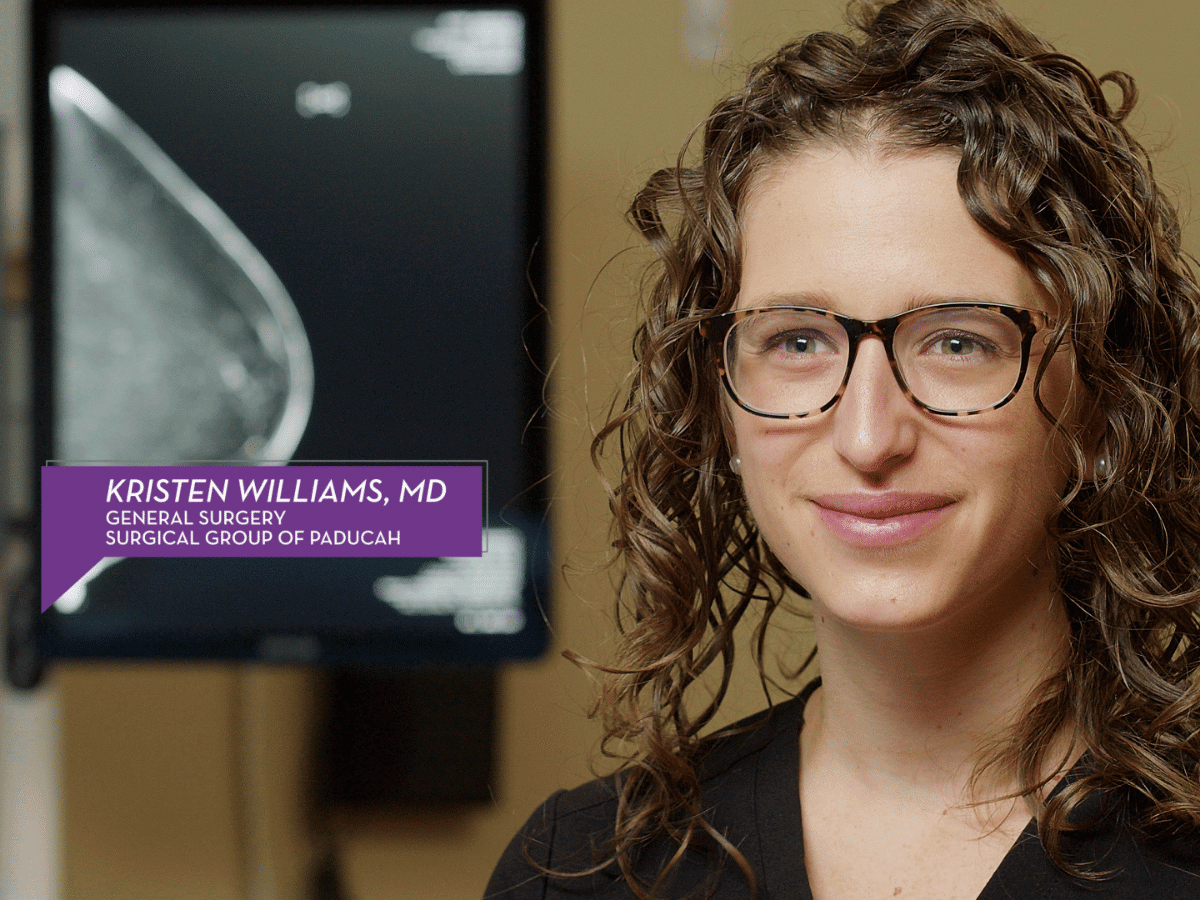What is a Mammogram? Common Mammogram Questions

Women won’t confuse a mammogram with a spa day, but the Imaging Center at Baptist Health Paducah tries to eliminate the anxiety with soft music, terry robes, and fresh flowers.
What is a Mammogram? Common Mammogram Questions
Another way to reduce anxiety? To get answers to your questions about breast cancer screening. Lead mammographer Mindy Cartwright answers a few of ours.
Q: I’ve had mammograms that hurt. What can I do to make them less painful?
A: You can take Tylenol® or another painkiller about an hour before you come in. The majority of women don’t have a problem, but some women have tender, sensitive skin.
Q: Why do you need to compress the breast so tight?
A: The breast is not like any other body part to X-ray. It’s composed of various layers of tissue. If you lay the breast on the table without compression, it’s not going to separate that tissue. You are not going to get a good image.
Q: I’ve heard I shouldn’t drink caffeine before a mammogram. Why not?
A: Sometimes caffeine — and even other foods — can aggravate skin or tissue that is tender anyway. If you eliminate caffeine from your diet for about a week before the test, the mammogram might not be as uncomfortable.
Q: Does the timing of a mammogram matter?
A: Around your menstrual period, the breast tissue is a little more tender. If your breast tissue is generally more tender around that time, you can wait to have the mammogram done.
Q: Why shouldn’t I wear deodorant during the exam?
A: Some deodorants contain aluminum and other particles that show up on a mammogram. To the radiologist, they can look like calcifications: small deposits of calcium that are usually, but not always, benign. It’s hard for the radiologist to know for sure that it’s deodorant versus something in the breast tissue.
Q: I have breast implants. Will I get as good of an exam as if I didn’t have them?
A: We are able to get good pictures regardless, especially if the implants are behind the muscle.
Q: Is it bad if I skip a yearly mammogram?
A: If you have a mammogram every year, your survival rate is greater because we’re going to catch things earlier. I know there are some recommendations that you can wait every other year, but it’s amazing what we see one year to the next. Sometimes if a woman had waited even one more year, that would have changed the diagnosis completely.
Q: Does it matter whether I have my mammogram at the same facility every year?
A: I believe it’s good to be consistent. It’s good to have the same group of radiologists looking at the images year after year.
Q: Do radiologists look at past images?
A: Yes. Radiologists depend on them. If they look at just that day’s mammogram and see something, there is no way to know whether it’s something new that’s developed or it’s just how the breast is composed and it’s always been that way.
Q: Should women do self-exams?
A: Yes. A lot of the things that we see that turn out to be malignant are because women feel it. They know their breasts better than anybody. They know how their breasts normally feel and what’s there that shouldn’t be.
Q: When can I stop having mammograms?
A: A lot of our elderly patients ask me that. I always tell them, “If you were to find out you had breast cancer, are you healthy enough, are you physically able enough, to go through all the treatment that is required?” And if you say no, then why have the mammogram done? But if you are in good health and can go through the treatment needed with breast cancer, then you absolutely need to have it done.
Baptist Health Paducah offers 3-D mammograms, which have proved more accurate in detecting cancers in women under 50, those with dense breasts and those who have not reached menopause. Learn more and schedule your exam today by calling 270.575.2600.



